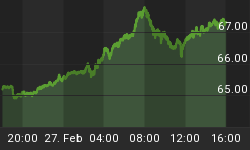The Markit Services PMI report shows service sector growth remains subdued in June. Data is from June 13 to 24.
The diffusion index reading for June is 51.3, nearly identical to the May reading of 51.2. Any reading above 50 shows expansion.
Employment expands at the slowest pace for a year-and-a-half.
Key Points
-
Marginal increase in service sector activity
-
Jobs growth eases for the third month running
-
Business optimism drops to a fresh survey-record low
Reports from survey respondents suggested that relatively subdued demand continued to weigh on activity growth in June, reflecting heightened economic uncertainty and risk aversion among clients. Latest data signalled only a moderate increase in new business volumes, although the pace of expansion picked up slightly since May and was the strongest for five months.
Staffing levels increased across the service economy in June. However, the rate of job creation eased for the third month running and was the slowest since December 2014. Softer employment growth in part reflected a lack of pressure on operating capacity at service sector firms, as highlighted by a sustained reduction in unfinished work during June.
Meanwhile, input cost inflation remained subdued and slowed to its weakest since March. This in turn acted as a brake on output charge inflation across the service sector, which remained marginal and eased since the previous month.

Comments From Chris Williamson, Markit Chief Economist
-
The survey data indicate that any rebound in the economy from the weak first quarter was largely confined to April, and that growth has since faded again. The June PMIs, which provide the first insight into national business activity in the second quarter, suggest the underlying rate of growth in the economy is only a meagre 1%.
-
Growth continues to be reliant on the service sector, with manufacturing acting as a drag on the economy. However, even the service sector has seen growth weaken in recent months, with firms citing increased uncertainty over the economic and political outlook both at home and abroad.
-
Business optimism was the lowest seen since the height of the financial crisis, with firms seeing greater hesitation in spending on services by business and households.
-
Uncertainty looks set to intensify in coming months and the UK's shock vote to exit the EU exacerbates domestic worries about the presidential election.
-
Signs of weak economic growth and a sluggish labour market, combined with 'Brexit' uncertainty, suggest that already-cautious policymakers will be in no rush to tighten policy.















